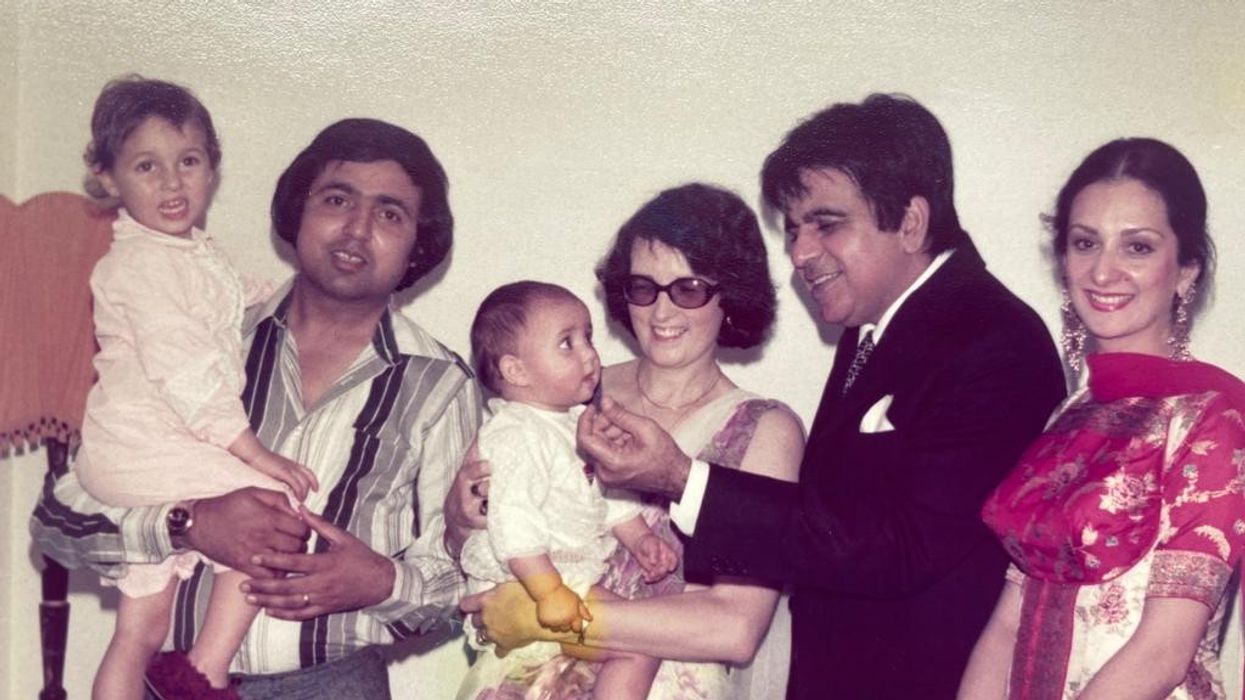THE death of Bollywood megastar Dilip Kumar last week made headlines worldwide, with tributes from heads of state and film stars. His house in Mumbai has already been designated as a national heritage site. For me, it prompted very personal memories of the 'King of Tragedy', having been in Kumar’s distant orbit for my entire life.
Our families have been friends for decades and my father first met him in the 1950s at a Mumbai film studio. He was already famous, but took time to discuss his decision not to star in Mother India with an excited, starstruck child. Years later, my father attended Dilip Kumar’s lavish, celebrity-heavy wedding to fellow actress Saira Banu, whose mother was a childhood friend of my grandmother. My father remembers him as kind and down to earth, despite the stratospheric level of fame he achieved during his lifetime.
Growing up with a picture of Dilip Kumar on our mantelpiece, my three-year-old self in his arms, I hadn’t fully appreciated the depth and breadth of his fame. As a half Indian, half Irish north Londoner I do not speak Hindi and was not immersed in Bollywood films. I’d always viewed this avuncular figure as a warm and funny presence in my extended family network. In the family photos of trips to India he always had a mischievous glint in his eye and joked in front of the camera.
By the time I was an adult I began to understand, having travelled, discovered Bollywood music and listened to my father’s tales of his own short stint working in the Indian film industry. I realised that Dilip Kumar was akin to royalty. In 2000, he came to London to open a Bollywood film festival at what was then the Millennium Dome. I visited with my family and cringed as one of my sisters asked if he had been in many films. He smiled graciously and nodded, unruffled, and then continued asking us questions in good humour. Although it was impossible to be immune to the golden aura of his presence, I remember him as eminently approachable and engaging.

It was the same when I visited Dilip Kumar’s palatial ‘bungalow’ in Mumbai. A chauffeur driven Mercedes came to collect us and we entered through imposing security gates into a tranquil, family home made from marble. He greeted us all so warmly and hospitably and I instantly recognised the man who had pulled funny faces in those childhood photos.
Since learning of Dilip Kumar’s death I’ve been fascinated to read about an incredible life that started humbly and spanned almost a century. I’ve loved hearing about the lives he touched and the boundaries he transcended. Friends have told me how their parents and grandparents adored his films and a colleague said it must have been like meeting Laurence Olivier. I know his legacy will live on in his films, but also feel fortunate to have glimpsed the joy, fun and love he shared with those closest to him.




